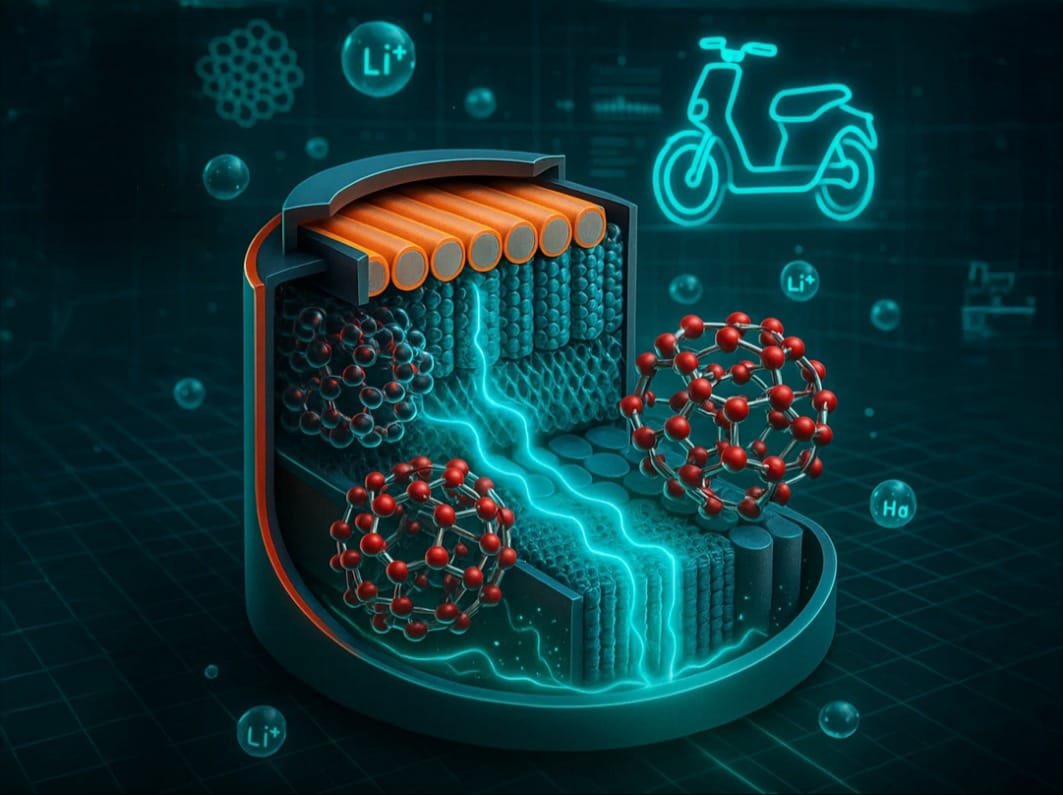Usage of affordable, long life, recyclable and non-flammable batteries is making electric two-wheelers more feasible. Although Graphene-based batteries have performed much better than simple Lead-acid batteries. However they still suffer from limitations as compared to Lithium-ion batteries such as relatively low energy density, slow charge acceptance and limited cycle life. To overcome these issues, researchers have explored the integration of advanced materials – among which Nano Carbon Fibers stand out due to their exceptional physical and chemical properties.
𝐖𝐡𝐚𝐭 𝐀𝐫𝐞 𝐍𝐚𝐧𝐨 𝐂𝐚𝐫𝐛𝐨𝐧 𝐅𝐢𝐛𝐞𝐫𝐬?
Nano Carbon Fibers are cylindrical nanostructures composed of carbon layers stacked in various arrangements. They typically range from tens to hundreds of nanometers in diameter and can be several micrometers long. Their key features include:
- High electrical conductivity
- Large surface area
- Mechanical strength
- Chemical stability
These properties make Nano Carbon Fibers ideal candidates for enhancing electrochemical performance in energy storage systems.


